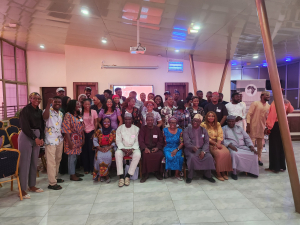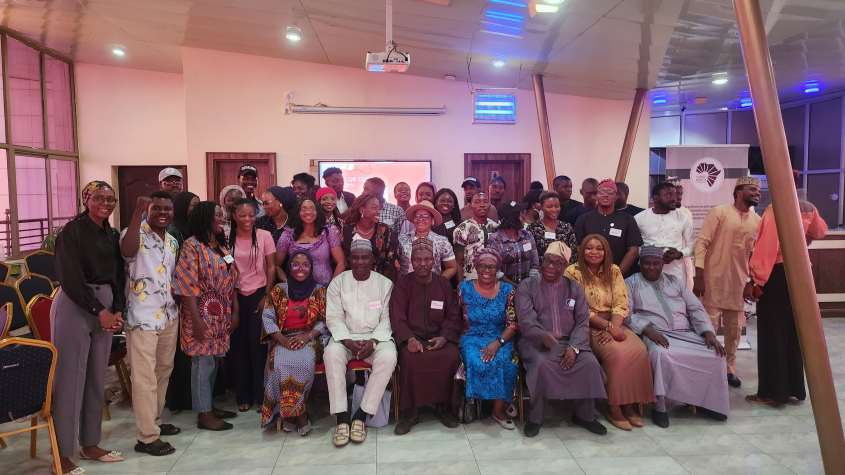Nigeria: Surge Africa hosts policy conference on climate policing, governance
Key climate stakeholders from the Nigerian government, civil society, and philanthropic sector, recently converged in Abuja, Nigeria, for Surge Africa’s one-day policy conference on key issues that intersect climate policies, governance, and development.

The convening, themed “Policy Convergence: Designing Pathways to Climate Governance,” was organized by Surge Africa, a non-profit working with governments and stakeholders to promote climate resilient policies and practices in Africa. It was the culmination of Surge Africa’ previous policy workshops for civic organizations aimed at strengthening collaboration, knowledge-sharing and developing their capacity on policy formulation and climate governance in Nigeria.
Consequently, the climate stakeholders deliberated on key issues around the intersection of climate policies, governance and development, particularly unpacking risks, drawbacks and opportunities for climate governance in Nigeria through expertise, shared experiences, the conceptualization of ideas and new thinking around how stakeholders should interact with, and design pathways that truly address the risks of climate change.
It will be recalled that Nigeria passed its Climate Change Act in 2021, which makes it obligatory for its federal and state governments to take the lead in effectively addressing climate change challenges. However, given that Nigeria’s economy is dependent on climate-sensitive ecosystems and natural resources, such as the agricultural sector, or the extractive sector, which must transition and go green, Surge Africa believes merely passing the Act was insufficient.
“Climate change is a socio-economic, political and diplomatic crisis when we examine it not only from the lens of vulnerability but from an economic, financial and security perspective. In a country where social systems are collapsing, citizens have no trust in government, and even the most defining crisis of our time is not being responded to with the sense of urgency it should be – devising frameworks that shape pathways to build resilience to the climate crisis might seem quite impossible,” said a post-event press release by Surge Africa.
The nonprofit believes the policy conference was a reminder that the fight against climate change is a team effort, requiring the government to work with youth. To that end, as major outcomes of the conference, stakeholders agreed that the government should value and prioritize youth engagement by providing them with platforms to influence decision-making and by working with them on projects and initiatives, as well as provide opportunities within climate governance structures for CSOs to help address climate risks.
The stakeholders also called for the need to mobilize local and state governments to foster civil society collaborations with state actors for impactful climate adaptation practices as well as the need to promote community mobilization and movement building, while advancing finance opportunities for climate justice. On its part, Surge Africa says it remains committed to continuously supporting youth initiatives aimed at mainstreaming young people in the area of climate governance.













